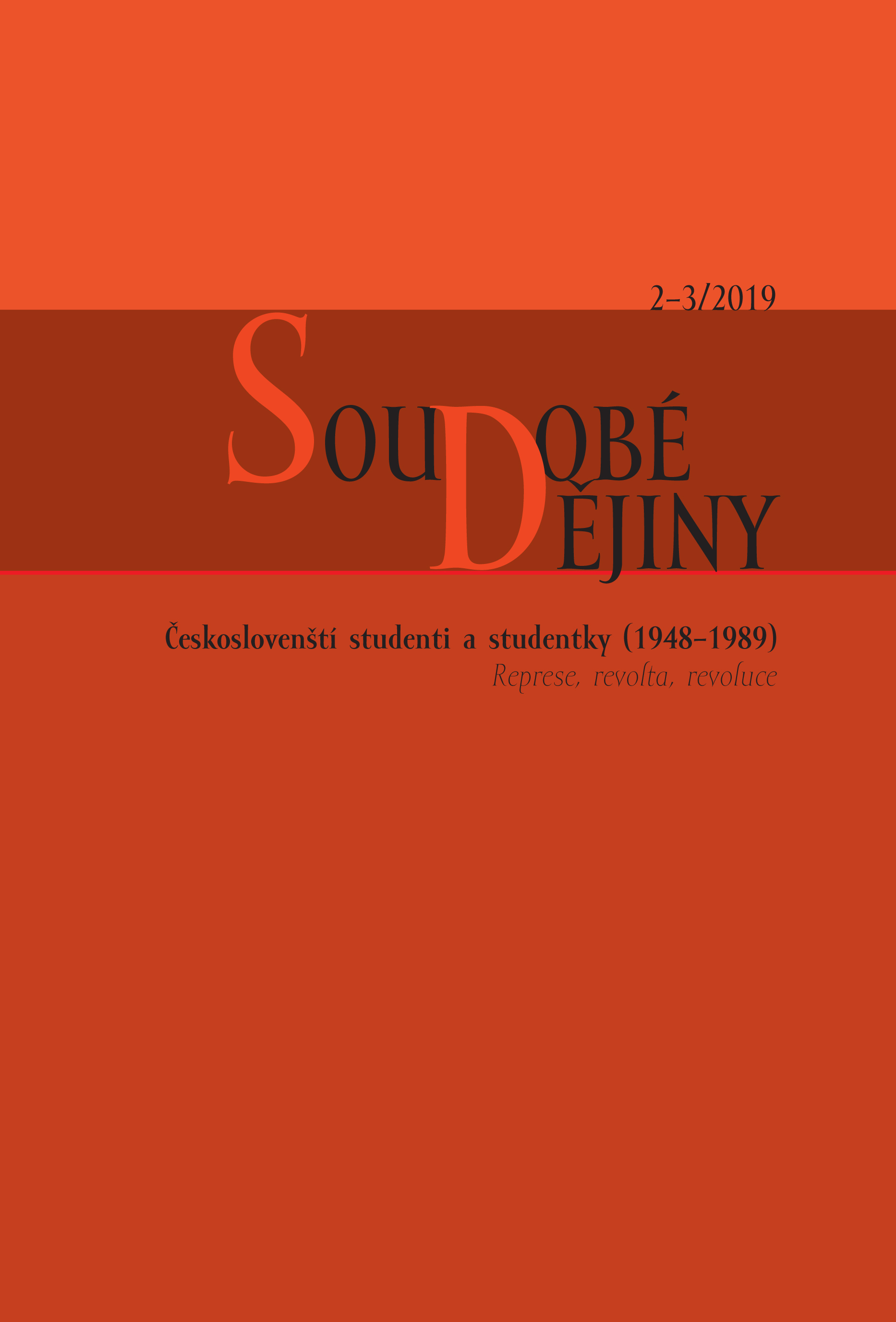"Demokratizačná akcia"
"Democratization Campaign"
Student´s purge at Slovak universities at the turn of 1948 and 1949
Author(s): Marta GlossováSubject(s): History, Comparative history, Political history, Recent History (1900 till today), WW II and following years (1940 - 1949), History of Communism
Published by: AV ČR - Akademie věd České republiky - Ústav pro soudobé dějiny
Keywords: Slovak students; Slovak universities; Communist regime; political purges
Summary/Abstract: In her study, the authoress examines one of the ways the newly established Communist regime in Czechoslovakia was using since February 1948 in an attempt to build new loyal elites and to prevent the formation of non-conformist ones. The topic is the screening of study results and political reliability of Slovak university students, which took place at the turn of 1948 and 1949 under the euphemistic name “democratization campaign” or simply “democratization”. The authoress sets the campaign into a broader political framework and into the context of the ideological discourse of those days. In doing so, she compares it to a parallel, so-called “study screening” in the Czech Lands, and also sets it in the context of multiple waves of the “purging” of Slovak universities between 1948 and 1960, showing its connection with a subsequent purge launched in 1950 as part of a campaign against the so-called Slovak bourgeois nationalism. Using results of her research in Slovak archives, she describes and summarizes the organization, course, and outcome of the “democratization campaign”. The screening used both criteria related to study results (employed primarily to justify the screening) and political criteria (reflecting the true objective of the screening process); a combination of these two groups of criteria ultimately produced several categories of students. Every student was either cleared and allowed to study on, or expelled – either temporarily, for two to three semesters during which he or she was expected to work in production, or permanently. It should be noted that there existed substantial differences in numbers of expelled students among various universities and faculties, and the authoress is trying to find an explanation. Compared to the outcome of the “study screening” in the Czech Lands, that of the “democratization campaign” in Slovakia was generally more lenient, often falling short of radical expectations of its organizers. The authoress claims that Slovakia’s outcome reflects three factors: lack of and need for skilled experts in various fields compared to the Czech Lands, the weak position of the Communist Party among students and teachers at some Slovak universities, and the existence of an Appeal Commission at the Slovak Ministry of Education, Sciences and Arts which reversed or changed many expulsion rulings. The Appeal Commission’s chairman Ernest Otto and the Commissioner of Education, Communist writer Ladislav Novomeský (1904–1976), thus found themselves in a conflict with leaders of the University Committee of the Communist Party of Slovakia, their more liberal approach to the “democratization campaign” contributing to their political and criminal persecution in the 1950s.
Journal: Soudobé Dějiny
- Issue Year: XXVI/2019
- Issue No: 2+3
- Page Range: 189-226
- Page Count: 38
- Language: Slovak

